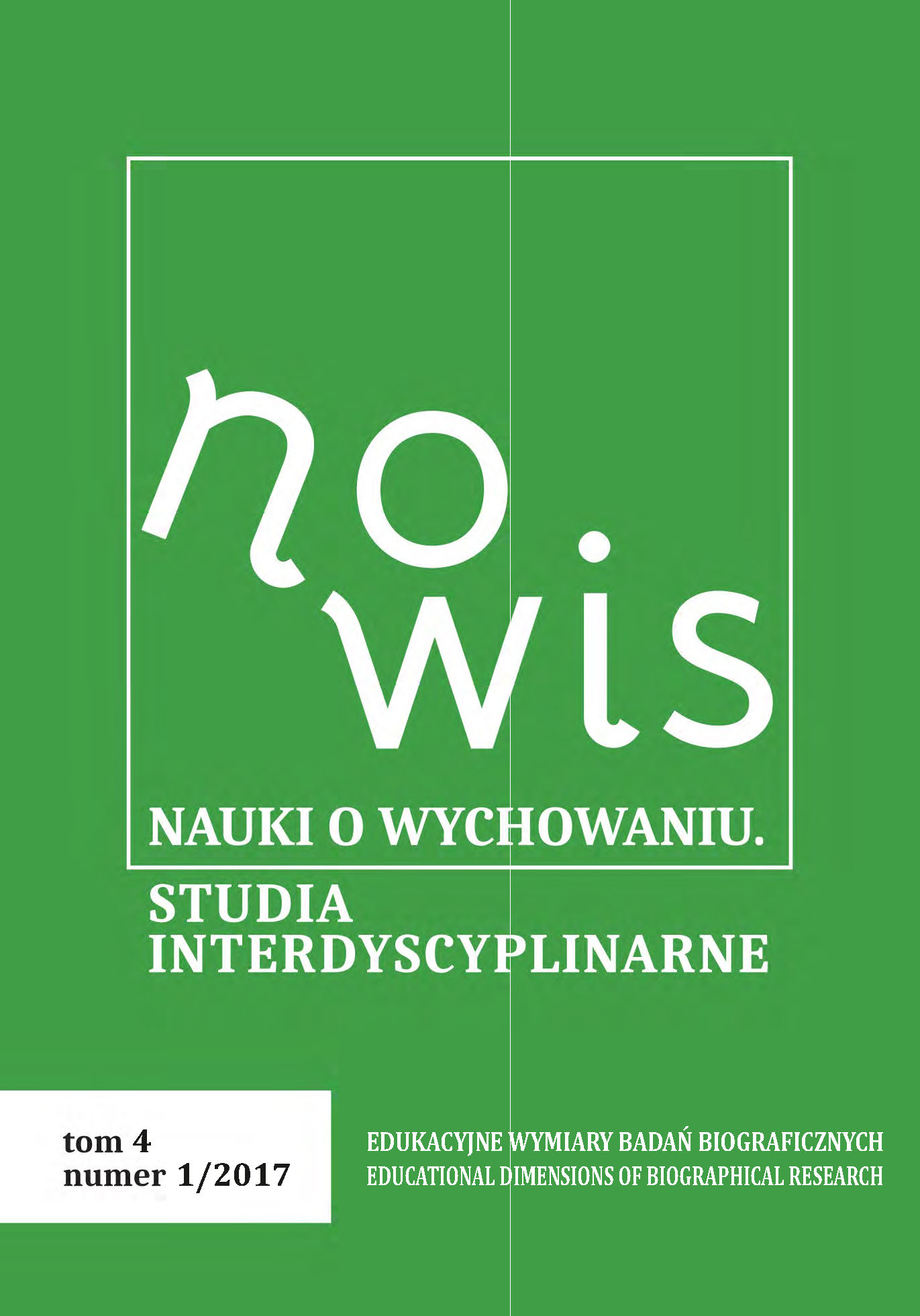Relacja córka – ojciec. Badania biograficzne w perspektywie feministycznej
DOI:
https://doi.org/10.18778/2450-4491.04.13Słowa kluczowe:
córka, ojciec, doświadczenie biograficzne, metodologia feministyczna, refleksyjnośćAbstrakt
Niniejszy artykuł jest skromnym przyczynkiem do debaty na temat refleksji nad doświadczeniami biograficznymi, w szczególności dotyczącymi relacji między córką a ojcem. W artykule omawiam przeprowadzony projekt badawczy poświęcony młodym kobietom, studentkom oraz ich postrzeganiu relacji córki z ojcem. Analizie poddaję autobiograficzne eseje kobiet studentek, uczestniczek projektu. Główną ideą tych badań jest dowartościowanie punktów widzenia samych kobiet oraz podkreślenie roli refleksyjności w procesie rozwijania samoświadomości. W tekście próbuję również przyjrzeć się własnemu procesowi stawania się refleksyjną badaczką feministyczną.
Bibliografia
Alexander I. (1989) A Conversation On Studying And Writing About Women’s Lives Using Nontraditional Methodologies, “Women’s Studies Quarterly”, 17 (3–4): 99–114.
Google Scholar
Appelrouth S. Edles L. D. (2008) Classical and Contemporary Sociological Theory: Text and Readings, Los Angeles, London, New Delhi, Singapore, Pine Forge Press.
Google Scholar
Collins Hill P. (1990) Black Feminist Thought: Knowledge, Consciousness and the Politics of Empowerment, Boston, Unwin Hyman.
Google Scholar
Collins Hill P. (2004) Learning from the Outsider With in: The Sociological Significance of Black Feminist Thought in: The Feminist Standpoint Theory Reader, S. Harding (ed.), New York, Routledge.
Google Scholar
Collins Hill P. (2005), Some Group Matters: Intersectionality, Situated Standpoints, and Black Feminist Thought in: A Companion to African-American Philosophy, T. L. Lott, J. P. Pittman (eds.), Blackwell Publishing.
Google Scholar
Haraway D. (1988) Situated Knowledges: The Science Question in Feminism and the Privilege of Partial Perspective, “Feminist Studies”, 14 (3): 575–599, http://www.staff.amu.edu.pl/~ewa/Haraway,%20Situated%20Knowledges.pdf
Google Scholar
Harding S. (1987) Conclusion. Epistemological Questions in: Feminism and Methodology. Social Science Issues, S. Harding (ed.), Bloomington and Indianapolis, Indiana University Press: 181–189.
Google Scholar
Harding S. (1991) Whose Science? Whose Knowledge? Thinking from Women’s Lives, New York, Open University Press.
Google Scholar
Intermann K. (2010) 25 Years of Feminist Empiricism and Standpoint Theory: Where Are We Now? “Hypatia”, 25 (4): 778–796.
Google Scholar
Maynard M. (1995) Feminist Social Research, „Kwartalnik Pedagogiczny” [The Pedagogical Quarterly], 1–2 (155–156): 97–117.
Google Scholar
Olesen V. (2005) Early Millennial Feminist Qualitative Research: Challenges and Contours in: The Sage Handbook of Qualitative Research, N. K. Denzin, Y. S. Lincoln (eds.), (3rd ed.): 235–278, Thousand Oaks, Sage Publications.
Google Scholar
Smith D. (1987), The Everyday World as Problematic: A Feminist Sociology, Boston, Northeastern University Press.
Google Scholar
Smith D. (1990) The Conceptual Practices of Power: A Feminist Sociology of Knowledge, Toronto, University of Toronto Press.
Google Scholar
Smith D. (2005) Institutional Ethnography: A Sociology for People, Toronto, AltaMira Press.
Google Scholar
Pobrania
Opublikowane
Jak cytować
Numer
Dział
Licencja

Utwór dostępny jest na licencji Creative Commons Uznanie autorstwa – Użycie niekomercyjne – Bez utworów zależnych 4.0 Międzynarodowe.





 Strona czasopisma, prowadzona przez Zespół redakcyjny NOWiS na platformie Index Copernicus:
Strona czasopisma, prowadzona przez Zespół redakcyjny NOWiS na platformie Index Copernicus: 





